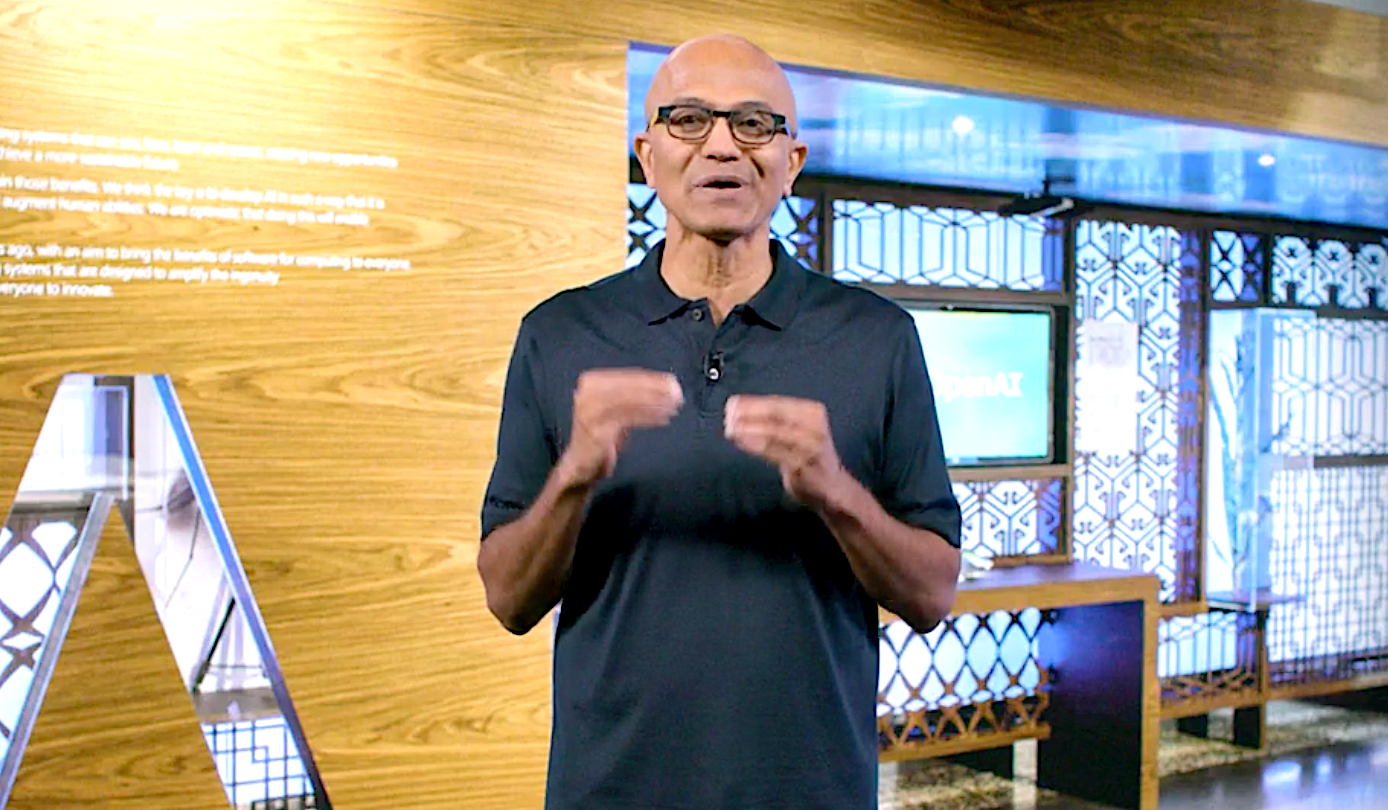 CLOUD
CLOUD
 CLOUD
CLOUD
 CLOUD
CLOUD
The budding romance between Microsoft Corp. and red-hot startup OpenAI LLC grew cozier today with Microsoft’s announcement that it will make a multiyear, multibillion-dollar investment in specialized supercomputing infrastructure to support OpenAI’s research and also incorporate the startup’s models across its consumer and enterprise products.
Billed as the third phase of a relationship that dates back to 2019, the deal also establishes Microsoft’s Azure cloud service as the exclusive platform for OpenAI workloads including GitHub Copilot automated coding tool, DALL-E 2 image generator and ChatGPT natural language model across research, products and application program interface services.
The announcement comes less than a week after Microsoft launched an Azure service that provides access to a managed version of OpenAI’s GPT-3 large language model. The companies have reportedly also held talks about Microsoft buying a $10 billion stake in the young firm. And there have been reports that the ChatGPT technology will be incorporated into Microsoft’s Bing search engine, which holds just 9% of the global search market despite years of investment by the software giant.
“In this next phase of our partnership, developers and organizations across industries will have access to the best AI infrastructure, models, and toolchain with Azure to build and run their applications,” Microsoft Chief Executive Satya Nadella (pictured) said in a statement.
Microsoft has offered few specifics about how AI might be folded into its enterprise applications, but the potential to reshape everything from Excel spreadsheets to LinkedIn shouldn’t be underestimated, said Rajesh Kandaswamy, a distinguished analyst and fellow at Gartner Inc. “For the first time AI allows us to apply probabilistic reasoning” to everyday computing tasks, he said.
Probabilistic reasoning calculates the probability that an event will occur based on evidence related to the event. For example, it could recommend an appropriate response to an email or size up the most important tasks an office worker should tackle each day.
“Enterprise customers could potentially see benefits across the full spectrum of Microsoft products they use,” Kandaswamy said. “The chance of their getting more AI-based products and services through the cloud will be easier and the AI capabilities of the Microsoft products they use will increase over time.”
The deal could also be a boost for Azure, which is the second-largest cloud infrastructure platform with 21% of the market, behind Amazon Web Services Inc.’s 33%. “I view AI as a fundamental change in computing that could be bigger than cloud,” Kandaswamy said. The alliance could also challenge Google LLC’s positioning as the best cloud platform for AI development.
“While Microsoft will obviously want a substantial commercial return on this partnership, they could get an even more significant short-term return in mindshare,” said Rowan Curran, an AI analyst at Forrester Research Inc. “The excitement around ChatGPT has already made it nearly synonymous with AI in many peoples’ minds, and Microsoft could capitalize off of that with increased demand for Azure’s OpenAI APIs and their broader AI/ML platform.”
The nonexclusive deal is a winner across the board for OpenAI, Kandaswamy said. “It now gets a way to showcase its innovations across a wide area and to get its technology in the hands of enterprises,” which haven’t been big users of ChatGPT so far, he said. “It also gains access to the powerful computing it needs to train its models.”
Forrester’s Curran concurred that “the deepening partnership with Microsoft could help OpenAI have a more secure financial position from which to continue its research and advancements.”
Despite its first-mover advantage, there is no reason to believe OpenAI or Microsoft will lock up the large language model market. Plenty of other startups are working on their own technologies, and giants like AWS and Google have been investing in AI for years.
A recent panel convened by theCUBE, SiliconANGLE’s streaming media platform, concluded that “this market is unlikely to display winner-take-all dynamics and will probably evolve in a more fragmented fashion than cloud computing,” wrote Dave Vellante, chief analyst of Wikibon, SiliconANGLE Media’s market research unit.
Support our mission to keep content open and free by engaging with theCUBE community. Join theCUBE’s Alumni Trust Network, where technology leaders connect, share intelligence and create opportunities.
Founded by tech visionaries John Furrier and Dave Vellante, SiliconANGLE Media has built a dynamic ecosystem of industry-leading digital media brands that reach 15+ million elite tech professionals. Our new proprietary theCUBE AI Video Cloud is breaking ground in audience interaction, leveraging theCUBEai.com neural network to help technology companies make data-driven decisions and stay at the forefront of industry conversations.